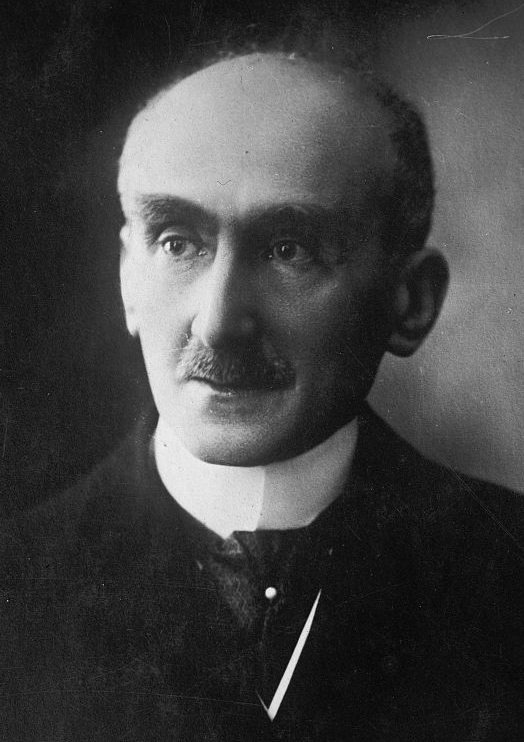Henri Bergson najznámejšie citáty
Potvrdené výroky
Zdroj: [KOTRMANOVÁ, Milada.: Perly ducha. Ostrava: Knižní expres, 1996 ISBN 80-902272-1-X]
Henri Bergson citáty a výroky
Henri Bergson: Citáty v angličtine
An Introduction to Metaphysics (1903), translated by T. E. Hulme. New York: G. P. Putnam's Sons, 1912, p. 44
“The eyes see only what the mind is prepared to comprehend.”
Robertson Davies as quoted in The White Bedouin (2007) by George Potter, p. 241
Misattributed
Zdroj: The Two Sources of Morality and Religion (1932), Chapter III : Dynamic Religion
Kontext: Religion is to mysticism what popularization is to science. What the mystic finds waiting for him, then, is a humanity which has been prepared to listen to his message by other mystics invisible and present in the religion which is actually taught. Indeed his mysticism itself is imbued with this religion, for such was its starting point. His theology will generally conform to that of the theologians. His intelligence and his imagination will use the teachings of the theologians to express in words what he experiences, and in material images what he sees spiritually. And this he can do easily, since theology has tapped that very current whose source is the mystical. Thus his mysticism is served by religion, against the day when religion becomes enriched by his mysticism. This explains the primary mission which he feels to be entrusted to him, that of an intensifier of religious faith.
“Men do not sufficiently realise that their future is in their own hands.”
Concluding sentences <!-- University of Notre Dame Press, 2002, p. 317 --> ; often just the last part of the last sentence is quoted, in the form: "The universe is a machine for making gods."
The Two Sources of Morality and Religion (1932)
Kontext: Men do not sufficiently realise that their future is in their own hands. Theirs is the task of determining first of all whether they want to go on living or not. Theirs is the responsibility, then, for deciding if they want merely to live, or intend to make just the extra effort required for fulfilling, even on their refractory planet, the essential function of the universe, which is a machine for the making of gods (la fonction essentielle de l'universe, qui est une machine à faire des dieux).
Zdroj: The Two Sources of Morality and Religion (1932), Chapter III : Dynamic Religion
Kontext: Religion is to mysticism what popularization is to science. What the mystic finds waiting for him, then, is a humanity which has been prepared to listen to his message by other mystics invisible and present in the religion which is actually taught. Indeed his mysticism itself is imbued with this religion, for such was its starting point. His theology will generally conform to that of the theologians. His intelligence and his imagination will use the teachings of the theologians to express in words what he experiences, and in material images what he sees spiritually. And this he can do easily, since theology has tapped that very current whose source is the mystical. Thus his mysticism is served by religion, against the day when religion becomes enriched by his mysticism. This explains the primary mission which he feels to be entrusted to him, that of an intensifier of religious faith.
Creative Evolution (1907), Chapter III. New York: Henry Holt and Company, 1911, p. 271
Creative Evolution (1907), Chapter I, as translated by Arthur Mitchell (1911), p. 14.; italicized in the original.
“Religion is to mysticism what popularization is to science.”
Zdroj: The Two Sources of Morality and Religion (1932), Chapter III : Dynamic Religion
Kontext: Religion is to mysticism what popularization is to science. What the mystic finds waiting for him, then, is a humanity which has been prepared to listen to his message by other mystics invisible and present in the religion which is actually taught. Indeed his mysticism itself is imbued with this religion, for such was its starting point. His theology will generally conform to that of the theologians. His intelligence and his imagination will use the teachings of the theologians to express in words what he experiences, and in material images what he sees spiritually. And this he can do easily, since theology has tapped that very current whose source is the mystical. Thus his mysticism is served by religion, against the day when religion becomes enriched by his mysticism. This explains the primary mission which he feels to be entrusted to him, that of an intensifier of religious faith.
“I would say act like a man of thought and think like a man of action.”
Je dirais qu'il faut agir en homme de pensée et penser en homme d'action.
Speech at the Descartes Conference http://books.google.com/books?id=BynXAAAAMAAJ&q=%22Je+dirais+qu'il+faut+agir+en+homme+de+pens%C3%A9e+et+penser+en+homme+d'action%22&pg=PA1579#v=onepage in Paris (1937)
Quoted in The Forbes Scrapbook of Thoughts on the Business of Life (1950), p. 442, as "Think like a man of action, act like a man of thought."
Quoted in Georgia O'Keeffe, 1887-1986 : Flowers in the Desert (2000) by Britta Benke, p. 28
“Sex-appeal is the keynote of our whole civilization.”
Toute notre civilisation est aphrodisiaque
Zdroj: The Two Sources of Morality and Religion (1932), Chapter IV
Un philosophe digne de ce nom n'a jamais dit qu'une seule chose : encore a-t-il plutôt cherché à la dire qu'il ne l'a dite véritablement. Et il n'a dit qu'une seule chose parce qu'il n'a su qu'un seul point : encore fut-ce moins une vision qu'un contact...
"L’intuition philosophique (Philosophical Intuition)" http://obvil.paris-sorbonne.fr/corpus/critique/bergson_pensee/body-5 (10 April 1911); translated by Mabelle L. Andison in: Henri Bergson, The Creative Mind: An Introduction to Metaphysics, Courier Dover Publications, 2012, p. 91
“The open society is one that is deemed in principle to embrace all humanity.”
La société ouverte est celle qui embrasserait en principe l’humanité entière.
Zdroj: The Two Sources of Morality and Religion (1932), Chapter IV
In a letter accepting the 1927 Nobel Prize in literature http://nobelprize.org/nobel_prizes/literature/laureates/1927/bergson-speech.html, read by the French minister, Armand Bernard.
